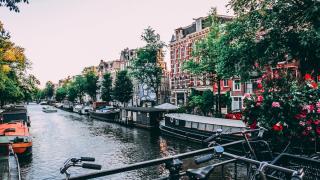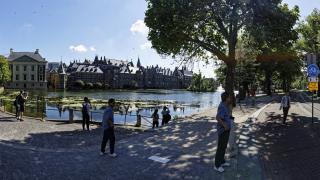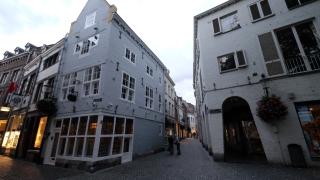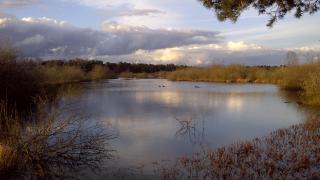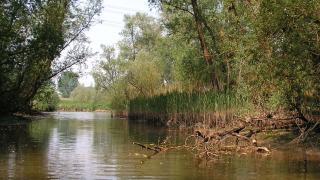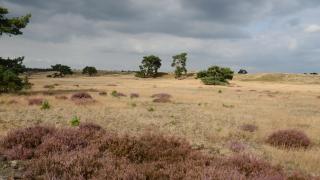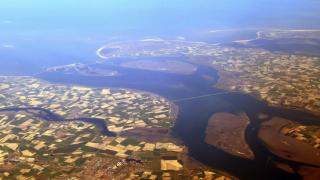Dutch Heritage at a Glance
Cultural heritage in the Netherlands is visible in daily life. Historic canals, windmills, and gabled houses shape city skylines. Amsterdam offers over 75 museums, including the Rijksmuseum and Anne Frank Huis. Entry fees range from €12 to €22. Delft features Renaissance architecture and traditional blue pottery workshops. Guided tours cost about €15 per person. Utrecht’s Domtoren, the tallest church tower in the country, dates to the 14th century. The Hague combines royal palaces with modern art galleries. The Mauritshuis displays Dutch Golden Age paintings. Entry is €19.50. Kinderdijk’s 19 windmills, a UNESCO site, are open March to October. Access is €19 for adults. Most heritage sites are accessible by train within one hour from Amsterdam. Many museums offer free entry with the Museumkaart (€75/year). Local traditions, like King’s Day and Sinterklaas, are celebrated nationwide. Dutch heritage is preserved through strict regulations and restoration projects. Both famous landmarks and lesser-known villages, such as Marken, offer authentic experiences. Travelers can explore heritage sites year-round. Most locations provide English-language tours and information.
Historic Cities and Living Traditions
Amsterdam features 17th-century canals and Golden Age gabled houses. The Anne Frank Huis opens daily from 9:00 to 22:00. Entry costs €16 for adults. The Rijksmuseum displays Rembrandt and Vermeer works. Museumplein is the cultural heart. Canal cruises depart every 30 minutes, costing €16-20. Delft is known for Renaissance façades and the Nieuwe Kerk. Delftware pottery workshops offer tours for €12. Local markets run Thursdays on Markt Square. Utrecht preserves medieval streets and the Domtoren, the tallest church tower in the Netherlands. Climb 465 steps for panoramic city views. Cafés line the Oudegracht canal, serving local specialties like Utrechtse vockingworst. The Hague (Den Haag) houses the Dutch royal family. Visit the Binnenhof, seat of government, and the Mauritshuis museum. The city blends historic districts with modern art galleries. Scheveningen beach hosts summer festivals. Tips for travelers:
- Attend King's Day (Koningsdag) on April 27 for nationwide street celebrations.
- Try poffertjes (mini pancakes) at local markets.
- Join a guided canal walk in Amsterdam or Utrecht for €10-15.
- Delft’s pottery workshops require advance booking, especially in summer.
- The Hague’s Royal Christmas Fair runs mid-December for local crafts and food.
Each city’s traditions and events offer insight into Dutch daily life and heritage.
Icons of Dutch Identity
Kinderdijk windmills are a UNESCO World Heritage site. Nineteen windmills stand near Rotterdam, built around 1740. They show Dutch water management expertise. Entry costs €19 for adults. Open daily from 9:00 to 17:30. Guided tours are available in Dutch and English.
Water management is central to Dutch history. Over 26% of the country lies below sea level. Dikes, canals, and pumping stations protect land and cities. The Delta Works and Afsluitdijk are modern examples.
Tulip fields bloom in spring, mainly in the Bollenstreek region. Keukenhof Gardens, open March to May, showcases over 7 million bulbs. Entry is €19.50.
Visiting tips:
- Stay on marked paths in tulip fields. Do not pick flowers.
- At Kinderdijk, photography is allowed. Drones require a permit.
- Use public transport or bike to reduce environmental impact.
- Respect local farmers and residents. Avoid blocking access roads.
Photo opportunities:
- Sunrise and sunset at Kinderdijk for windmill silhouettes.
- Early April for peak tulip colors.
- Always ask before photographing people.
These icons are unique to the Netherlands. They reflect Dutch innovation and tradition.
Museums, Art, and Innovation
The Netherlands is home to world-renowned museums and artistic heritage.
- The Rijksmuseum in Amsterdam houses over 8,000 Dutch masterpieces. Entry: €22.50. Open daily 9:00–17:00.
- The Van Gogh Museum displays the world’s largest Van Gogh collection. Tickets: €20. Timed entry required. Closed Mondays.
- Mauritshuis in The Hague features Vermeer’s Girl with a Pearl Earring. Entry: €19.50. Open 10:00–18:00, closed Mondays.
- The Anne Frank Huis preserves the original hiding place. Tickets: €16. Pre-book online. No tickets at the door.
- Dutch Masters such as Rembrandt, Hals, and Steen are central to museum collections.
- Contemporary art is showcased at Stedelijk Museum Amsterdam and Kunsthal Rotterdam.
- Unique experiences include canal house museums like Museum Van Loon and Willet-Holthuysen.
- Open-air museums such as the Nederlands Openluchtmuseum in Arnhem recreate historic Dutch villages. Entry: €19.50.
- Many museums offer free entry with the Museumkaart (€75/year).
- Most museums are wheelchair accessible. Audio guides available in Dutch and English.
- Peak times: weekends and school holidays. Visit early mornings or late afternoons for fewer crowds.
- Dutch art and innovation connect in design, architecture, and technology displays, especially at NEMO Science Museum.
- Museum shops sell Delftware, prints, and Dutch design souvenirs.
Festivals, Food, and Local Customs
King’s Day (Koningsdag) is celebrated nationwide on April 27. Amsterdam hosts street markets and music events. Entry is free. Sinterklaas arrives by steamboat in mid-November, with parades in cities like Utrecht and Rotterdam. Children receive gifts on December 5. Flower parades (Bloemencorso) occur in spring, especially in Zundert and Lisse. Floats covered in dahlias travel 40 km routes. Traditional foods:
- Stroopwafels cost €2–€3 at markets in Gouda.
- Raw herring (haring) is eaten with onions at haringkar stalls, especially in coastal cities.
- Cheese markets in Alkmaar and Edam run April–September, Fridays 10:00–13:00. Entry is free.
Local customs:
- Cycling is the main transport in cities. Bike rentals cost €10–€15 per day.
- Gezelligheid means enjoying cozy, social atmospheres, often in cafes or homes.
- Dutch people value directness in conversation.
Tips:
- Respect local traditions by observing before joining.
- Try foods at local stalls.
- Greet with a handshake or three kisses on the cheek.
Practical Heritage Explorer Tips
Travel between Dutch heritage sites is efficient.
- NS trains connect Amsterdam, Delft, Utrecht, and The Hague. Intercity fares start at €8–€15. Trains run every 15–30 minutes.
- OV-fiets bike rentals are available at most stations. Cost: €4.45 per 24 hours. Bike lanes are common in all heritage cities.
- Walking is practical in historic centers like Delft and Utrecht. Distances are short; most sites are within 2 km.
Book tickets for major museums and sites online.
- Anne Frank Huis, Rijksmuseum, and Kinderdijk require advance booking. Tickets often sell out days ahead.
- Use official websites: rijksmuseum.nl, annefrank.org, kinderdijk.nl.
Accessibility is prioritized at Dutch heritage sites.
- Many museums offer lifts and ramps. The Anne Frank Huis has a separate accessible entrance.
- NS trains have step-free boarding at major stations. Check ns.nl/en for details.
Respect local etiquette.
- Photography may be restricted in historic churches and museums. Look for signs.
- Speak quietly in memorial sites and during local festivals.
Resources:
- Download the Iamsterdam City Card app for discounts and maps.
- Local guides offer themed heritage tours in English and Dutch. Prices from €15 per person.
